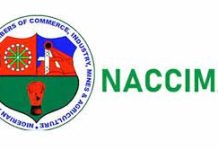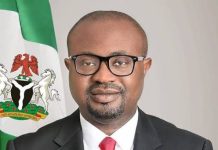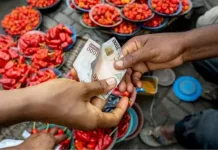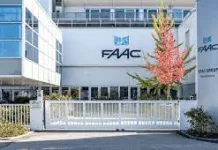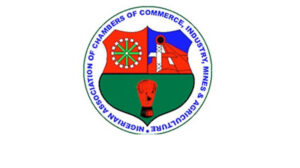
The Nigerian Association of Chambers of Commerce, Industry, Mines, and Agriculture (NACCIMA) has urged the President Muhammadu Buhari Government to devise urgent steps to address the alarming cost of doing business in the country.
READ ALSO: EFCC Chair, Bawa Convicted Over Refusal To Return Seized Range Rover, N40m
NACCIMA President, John Udeagbala, said this in Lagos at the association’s quarterly economic outlook press conference which was held on Thursday.
While urging the Federal Government to do away with policies constituting bottlenecks to business investments, Udeagbala said there were many critical issues, which, if addressed urgently, would help to position the economy for foreign direct investment and encourage local investors to establish industries that would enhance job creation and improve GDP.
On the consistent increase in headline inflation, the NACCIMA president said it would be preposterous to assume that the rising cost of food prices could simply be controlled by adjustment to the monetary policy rate.
According to him, the multiple exchange rates of the Central Bank of Nigeria, stringent policy bottlenecks in obtaining foreign exchange and the security challenges posed to farmers and rural dwellers had exacerbated inflation.
Udeagbala said, “These factors need to be urgently addressed if inflation must be nipped in the bud. Fiscal policies and public expenditure controls at various government levels during this electioneering period will add to keep inflationary rate in checks.
“Furthermore, it will also be more impactful on the economy for the implementation of the Central Bank of Nigeria interventions in the Agriculture, Manufacturing, Energy, Healthcare and Export sectors. This will further ensure inclusive growth and development of Nigerian economy.”
He further stated that it had become very glaring that Nigeria’s debt as at today was high and unsustainable given the dwindling government revenue.
He said despite the revenue shortfalls recorded, government recurrent expenditure (debt and non-debt) remained high while the much-needed capital expenditure continued to suffer serious declines over the last two decades.
READ ALSO: Two Jumia CEOs Step Down Over Firm’s Losses
Udeagbala said that the association had noted, with deep concern, the rising cost of governance as proposed in the 2023 budget of N20.51 trillion. He said the planned expenditures for debt servicing would surpass the budgeted amount for capital expenditures by at least 15 per cent.

